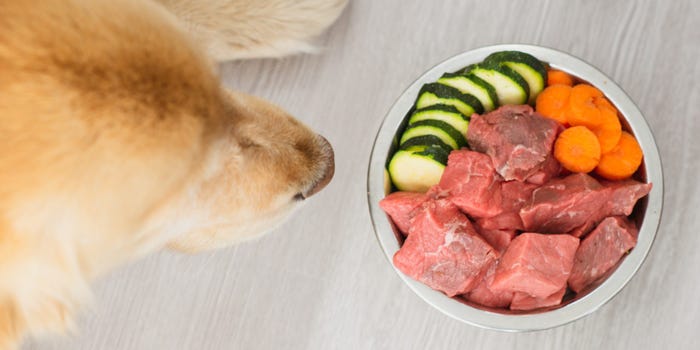What we feed our dogs needs to be more delicate to account for their unique physiology. Unlike humans, they cannot process certain food items and are more prone to different metals. This is why it’s best to give them a healthy dose of organic foodstuffs from time to time. However, not everything that looks natural necessarily means they’re great for you or your dogs.
Most of the meat products in the US come from concentrated animal feeding operations (CAFOs). These facilities have changed how traditional family farms work by maximizing produce capacity by releasing meat products as fast as possible. For example, these facilities force calves weaned at just nine months of age to live in congested conditions. This stressful environment can significantly impact their byproducts, whether its meat, milk, or other materials.
An Overview on Factory-Farmed Meat
Dairy cows, goats, bison, and sheep are farm animals that typically eat fibrous grasses and plants for their daily sustenance. However, they don’t get this quality of diet when they’re raised in factories. Instead of nutritious grasses, they receive formulated grains for their daily meals. These grain-fed animals are more at risk of getting illnesses and requiring antibiotics.

A typical diet for factory-farmed animals consists of grains, corn, soy, and grain distillates. These distillates can be leftovers of by-product feedstuff, which can range from potato peels, candy, potato waste, and more. Since the goal of this diet is to fatten animals for greater meat output, it’s not uncommon to include genetically modified grains in their diet as well.
This grain-based diet leads to cattle that produce meat containing less vitamin E and lower levels of omega-3 fatty acids. Instead, their meat content is high in omega-6 fatty acids, known to be inflammatory agents. It can be dangerous for your pets to eat these meat products regularly, especially if they’re nearing their golden years.
An Alternative to Factory-Farmed Meat
Unlike factory-farmed animals, pastured animals are raised outdoors on sustainable farms. This provides the farm animals with a wide field to move, grow, and develop their bodies naturally. When cows are raised in these environments, they’re allowed to graze outdoors and take their time eating grass directly from nature.
Unfortunately, cows raised in these environments don’t fatten as fast as factory-farmed animals. Since grass is less dense than grain and soy p[roducts, they take much longer to meet market weight requirements. However, this makes the meat they produce much healthier and full of nutritious nutrients.
An Analysis of Grass-Fed Beef
The saying “You are what you eat” also applies to cows, which is why a natural diet gives their meat the same nutritional value as well. Grass-fed animals produce meat that contains high levels of vitamin A and E, cancer-fighting antioxidants, zinc, calcium, and dozens of other healthy nutrients.
Additionally, grass-fed meat products have much lower fat content, making them give fewer calories per pound. These are healthier alternatives for your dog and provide much greater nutritional value for their dietary needs.
Conclusion
Some raw meat diets do have significant health benefits for your dogs. This is why many dog owners mix up their furry friends’ routine from the usual bag of treats. However, you should be cautious about the source of these meat products. The best way to keep your dog healthy is by doing your research on the most appropriate meals that will benefit them.
If you're looking for a local pet shop in Fremont, we're the right go-to store for you. We have a wide range of pet-related products and services to help you in caring for your furry friends. Browse our product catalog today!

